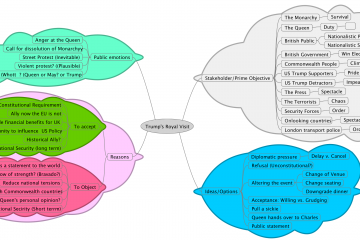Internet Publishing and the Law
Publishing web content can mean publishing blog content, whole books in email form or multimedia files such as movies or music. Compared to traditional publishing it is very easy to do. The challenge is that there are many laws and problems that may arise if you do not consider whether you are publishing morally or legally correct content. This post will guide you not through HOW to publish web content on the Internet, but how to avoid common legal or moral consequences.
Can anyone publish anything on the Internet?
Most people CAN publish anything on the Internet, but that does not always make it legal or acceptable to do so. Let’s take some analogies… you CAN go into a sweetshop and take the sweets without paying. You might get caught, but you might not. More appropriately, you CAN paint graffiti all over the school wall or under a rail bridge. You might get killed by a train, or expelled, or arrested or made to clean it up by the courts, but that doesn’t stop some (sometimes very impressive graffiti, such as Banksy) from being created and admired.
One main difference between Internet Publishing and Grafitti is that there is no stigma associated with publishing. In general it is seen as a good thing to do (at least, in the west). The difference, though, is that WHAT you publish may cause offence or may be illegal. Even if it is legal in YOUR country, that does not necessarily mean that it is legal all over the world. If your actions caused the death of a child in another country, are you guilty of manslaughter? Well – you COULD be, so this blog post is here to help you stay out of trouble.
How can Web Content Publishing put you in Court?
There are many ways. How are some, starting with the most serious. Beyond the serious ones, which I hope most of you would realize straight away, I encourage you to look and some of the more trivial cases. These are the ones that are most likely to come back to haunt you.
Inciting Riots or Terrorist Activity
There are many terrorists that would never have killed people if the Internet had never existed. For example, the New York bomber. This is such a dangerous issue, that the United Nations Office on Drugs and Crime has published a paper on the problem. Law enforcement is trying hard to catch these people and they if you are publishing this kind of content, don’t expect to stay on the streets for long. Not only are YOU legally responsible, but so are the search engines if your content gets found in search, so they are running algorithms to stop and spot you. (I assume this text will also get reviewed by either a human or a computer at Bing and Google.) On top of this, if you publish your content through a social network, such as Facebook, Twitter or Instagram, these organisations also have legal obligations and they will be obliged to report this to the authorities and also any details that they have about you in the process. Lastly, if you post on your own blog or website, your hosting provider has legal responsibilities in many countries and will, on request, be legally required to not only delete the content but also to give all details of the author over to the authorities.
OK – nightmare scenario over. Let’s assume that isn’t what you want to do. If it is – please get help. There’s always a better way than that.
- Digital Copyright Infringements
This is very common. You can’t just publish copied MP3 Files on the Internet, as John Ossenmacher and Larry Rudolph, AKA Lawrence S. Rogel found out in this court case with Virgin and others. What you publish on the Internet either has to be your OWN work, or it has to be published with the permission of the owner of the work. That goes for text too, and even images. For many years, Getty Images used to make a lot of money looking for websites that had simply cut and pasted images that they owned onto their posts. They then sent through an ultimatum: “Pay royalties or go to court!” Ironically, Getty Images didn’t always check whether they really owned the rights to the images they tried to charge for, and eventually, they were themselves sued by a photographer who got charged for her own photos! Only in America… But the point remains – don’t steal content! If you want content, Wikipedia’s content is all open source and this includes their images. It is nice to credit the source though.
Publishing Fake News
Here the law becomes extremely variable depending on the country in which you (or the reader) is when they read it. Regardless, do not lie online! I am in the UK, so I am not protected by America’s “Right to Free speech” (first amendment) law… but even if you ARE in the USA, you may not be protected either. If you are publishing fake news on your business website, then your business does not have a right to say anything they want. California and North Carolina have different points of view on whether even Social Media posts have first amendment protection. Outside the USA, outright lying is generally NOT legal. I am inclined to agree with the rest of the world on this one. But that’s an opinion, not a fact! The truth is that publishing untrue statements, knowingly, can have harmful repercussions. At the very least, you need to be able to either stand by your statements and justify them if required or retract them in not. We all make mistakes, but some make more legal gaffs than others.
Publishing Personal Information
New laws have made publishing personal information about people without their permission very dangerous legal territory indeed. This applies especially to the UK and Europe, but California, Canada and other countries are also adopting wide-ranging GDPR laws (General Data Protection Regulations). Just because you are “one person”, please do not think your actions will not get you into deep water. They might! This one is especially important in the UK at least, because almost every UK business is contributing money into the ICO (Information Commission) which is building out a powerful fighting fund to get tough on personal data privacy breaches. Individuals and companies alike are getting sued all the time! So much so, that you can see a data feed of data privacy infringement enforcement cases.


2 Comments
Heather · 18th September 2020 at 3:33 pm
Hi! I’m trying to get my blog off the ground. It is an educational blog. I’m a former teacher turned homeschool mom. I have personal experience with children not wanting to write but loved when we made a family newsletter. That assignment really made this particular kid want to write. I have heard of other parents having problems with reluctant writers. I was considering creating a newsletter that would be found on my site that would be written for kids by kids. It would be used as a way to help get kids excited about writing. Now… This plays twofold because I’m hoping it will also increase traffic to my site. I have parents excited about this idea. I want to know how I can legally do this. As of right now, I’m not making any money off my site but hope to grow it into a business. Any insight or direction is welcomed! I’m in the US. Thank you.
Dixon Jones · 18th September 2020 at 3:44 pm
Hi Heather – just publish original content and you will be FINE! I doubt you’ll be inciting people to riot! 🙂
But – I would say that hosting your WordPress site on your OWN hosting (rather than the free WordPress subdomain) really does make sense if you ever hope to make money out of it.